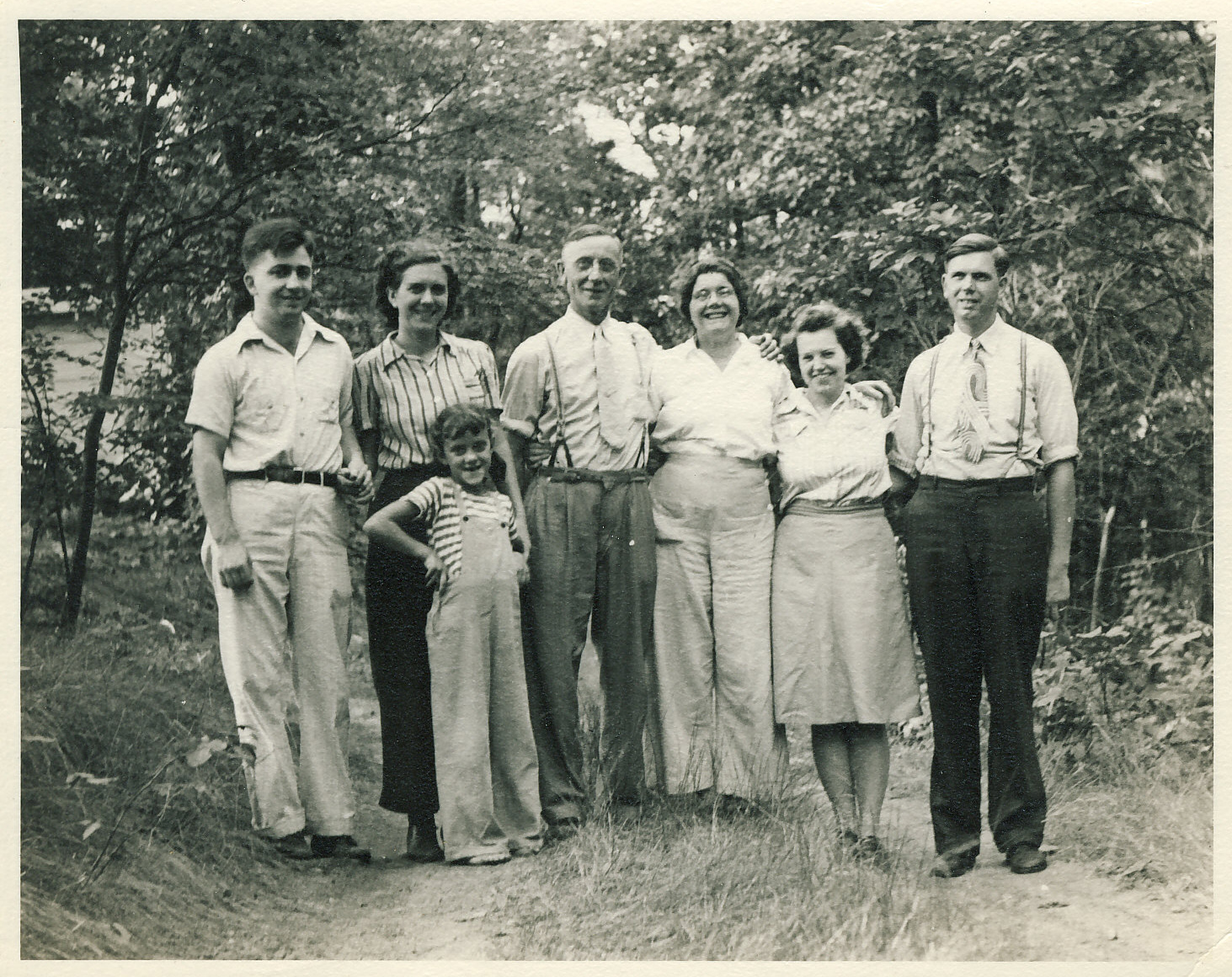A century after the Spanish Flu ended in the spring of 1920, the COVID-19 pandemic now has arisen to infect and devastate lives worldwide. Today’s pestilence brings to mind a story from the last one — the story of Helen (née Slonneger) Schrotzberger, a healer from that earlier era.
Helen was born in 1881 in Hamilton, Ohio, the second of three children of Christian K. Slonneger and his wife Emma Mitchell. An 1882 biographical cyclopaedia gave a thumb-nail sketch of her father Christian:
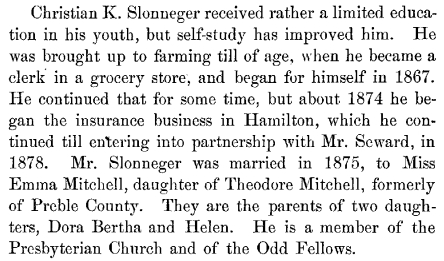
Helen’s mother passed away at age 32 when Helen was three years old and it appears the children were separated and placed with relatives; Helen was living with an aunt and uncle in Illinois and working as a seamstress at age 18.
Meanwhile her father, ever the entrepreneur, worked for a year as a postmaster in Florida, then as an insurance and real estate agent in Indiana.
By her mid-20s Helen relocated to California where she met Fred Schrotzberger and married him in 1908 in Los Angeles when he was 40 and she was 26. Fred and his brother Ted had been in business since 1906 as owners of the Schrotzberger Bros. meat market, working and living together in L.A.
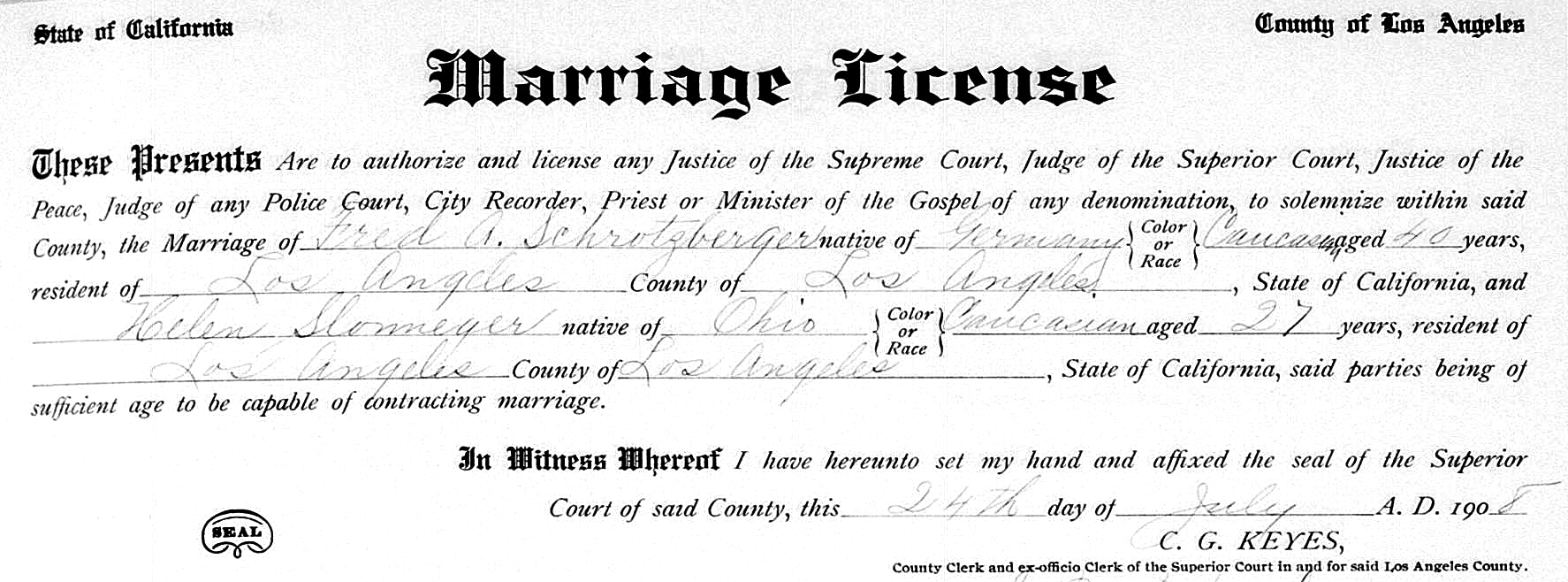
Helen and Fred had a son, Theodore, a year after their marriage. He was undoubtedly named after Fred’s brother, and even considered himself years later as a “Junior” to his uncle, signing himself thus on his World War II draft card.

By 1913 Fred moved his small family to Glendale on the north side of Los Angeles. An ad from that year in the Glendale directory shows that Helen’s father, Christian K. Slonneger, joined his daughter in California and opened a grocery and meat market with his son-in-law called the Century Grocery & Meat Market, naming Schrotzberger & Co. as proprietors.
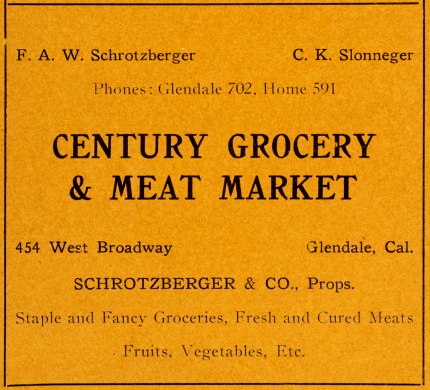
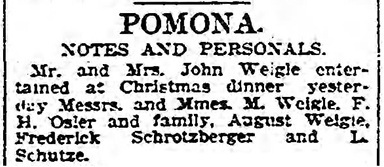 By 1916, Helen and her husband Fred moved 40 miles east to Chino. Fred managed one of the stores in the chain of Weigle Meat Markets, a company he’d started butchering with when he first moved to California around 1904 as shown by this newspaper clip from that year.
By 1916, Helen and her husband Fred moved 40 miles east to Chino. Fred managed one of the stores in the chain of Weigle Meat Markets, a company he’d started butchering with when he first moved to California around 1904 as shown by this newspaper clip from that year.
It probably felt like a homecoming for Fred. And Helen, too, may have felt particularly at home in the rural farming community where they lived on a tree-lined street in town, reminiscent of the small townships of her childhood in the mid-west. (Chino at a later time became “a popular site for Hollywood crews to shoot ‘midwestern’ settings.”)1
Voter records show Fred registered as a Republican. Helen, however, registered with the Prohibition party, indicating her support for the growing prohibition movement in America. It may also have been a window into her personal sense of sobriety and responsibility.
Now in her early thirties, married, mother of a small son, and reunited with a father who lived near by, life would have looked close to perfect.
Until 1918 rolled around.
The 1918 Influenza Pandemic started in February 1918 and ran through April 1920, infecting 500 million people — about a third of the world’s population — and killing up to 50 million people in four successive waves.
The second wave, more lethal than the first, started in August 1918. It may have been about that time that Helen, while still raising their nine-year-old son, volunteered her services at a local emergency hospital.
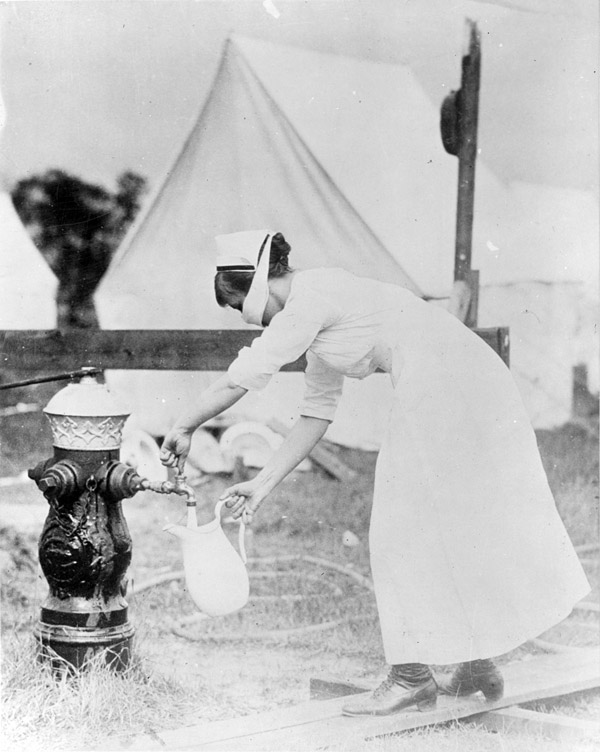
It was a noble and selfless act.
But one that proved fatal.
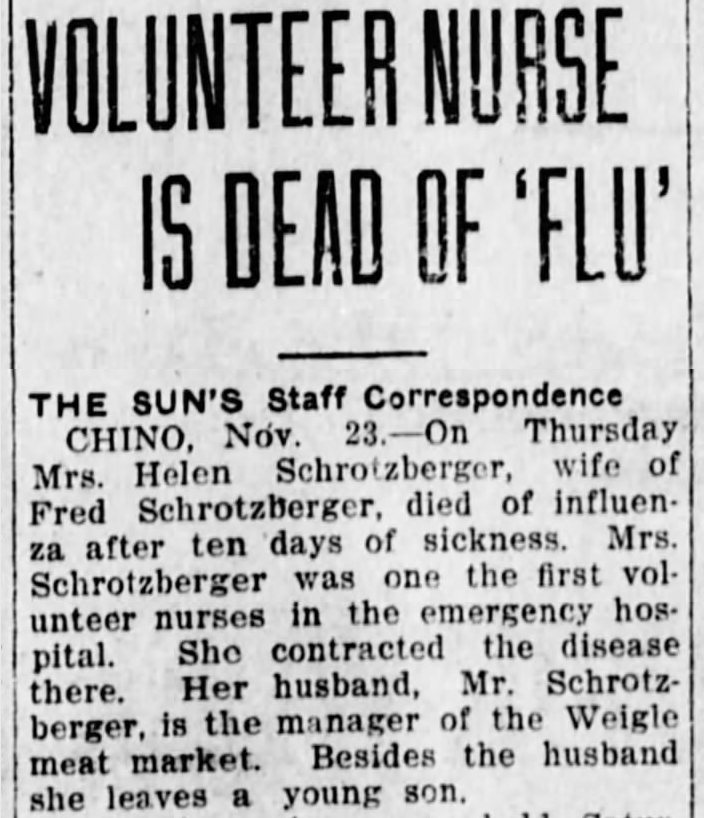
Victims who battled the disease struggled for breath: “their lungs filled with fluid and they suffocated to death.”2 Despite the horror and danger, Helen joined those fighting the disease in her community.
With Helen’s passing she left behind a son and a grieving husband who never found it in his heart to remarry.
In Albert Camus’s novel The Plague there is a conversation between a local doctor in the pestilence-stricken town of Oran and a visitor who has been stuck in its quarantine. The visitor, who has seen a lot of death in his life, says,
“All I maintain is that on this earth there are pestilences and there are victims, and it’s up to us, so far as possible, not to join forces with the pestilences.”
He goes on to add,
“I grant we should add a third category: that of the true healers. But it’s a fact one doesn’t come across many of them.”
I thought of Helen Schrotzberger when I read that passage. She was among her pandemic’s “true healers.”

Today we are living through our own plague. Keeping Helen’s compassion and selflessness in mind, we can decide to “not join forces with the pestilences.” In consideration of others in our communities we can mask up, judicially distance, and receive inoculations when they’re available. We can also refuse to join forces with the ‘social’ pestilences of our age: the prejudice, divisiveness, dismissiveness, selfishness, fear, and hatred spread virally through our media and political cultures.
Helen’s husband Fred moved back to Los Angeles after her death, initially moving in with his brother Ted’s family until he got back on his feet. He continued working as a butcher at a grocery store, raising his son, and sharing his home with him until his death at age 76 in 1944. His son Theodore married at age 33, a year before his father’s passing, and had three sons of his own.
Helen, of course, never got to see her son mature or to enjoy her grandchildren. Nevertheless they are her legacy, as was her example of selfless courage and compassion during a pandemic.
End Notes:
1. Wikipedia, “Chino, California,” https://en.wikipedia.org/wiki/Chino,_California.
2. National Archives and Records Administration, “The Deadly Virus: The Influenza Epidemic of 1918,” https://www.archives.gov/exhibits/influenza-epidemic/.
